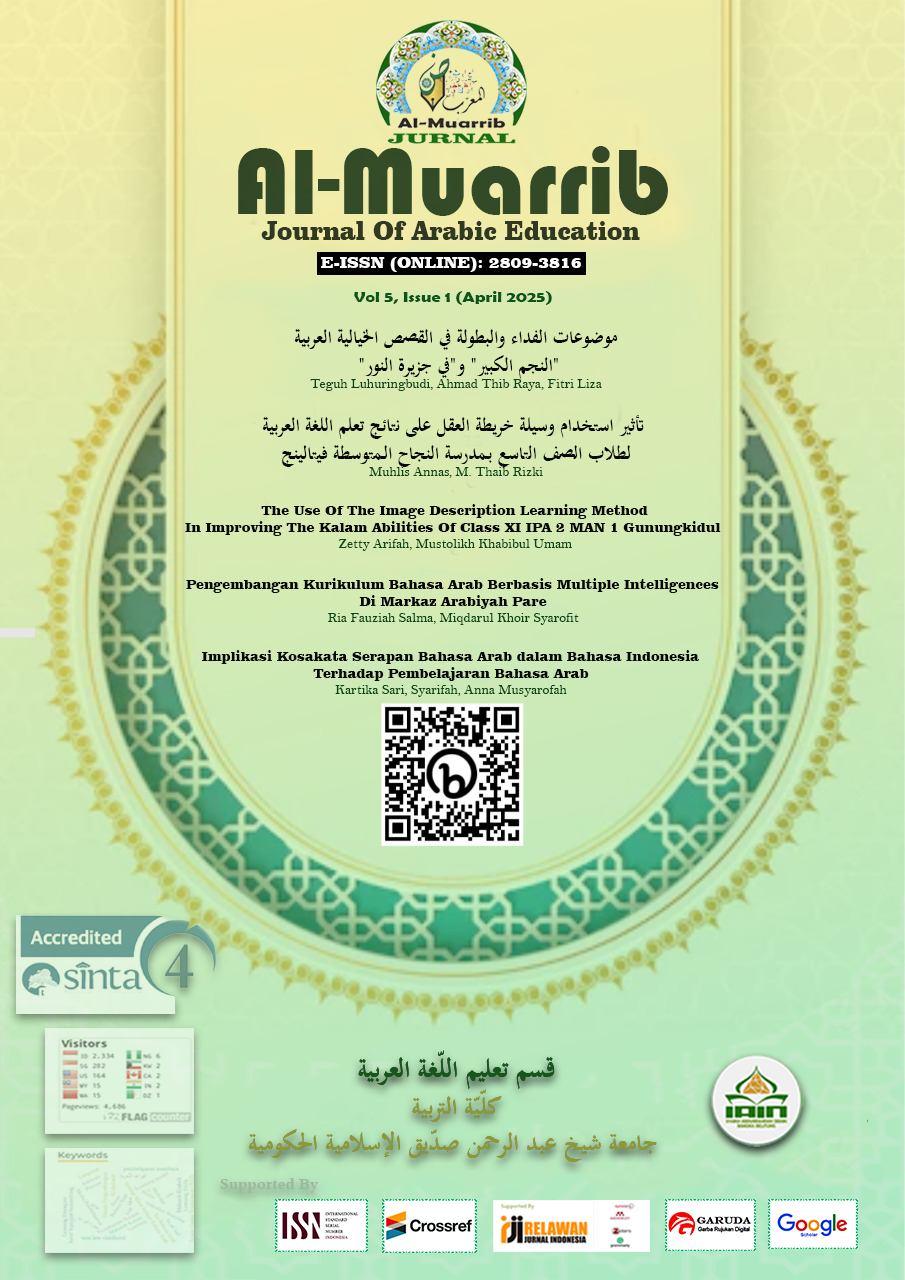"موضوعات الفداء والبطولة في القصص الخيالية العربية "النجم الكبير" و "في جزيرة النور
DOI:
https://doi.org/10.32923/al-muarrib.v5i1.4964Keywords:
themes of redemption and heroism, Arabian fairytales, monomyth, archetypal perspective, resilienceAbstract
The objective of this research was to examine the themes of redemption and heroism in two Arabic fairy tales, "Al-Najm al-Kabīr" and "Fī Jazīrah al-Nūr," and their implications for sustainable development. The research aimed to investigate how the protagonist's journey in these fairy tales reflected Arab societal values and personal growth. The data collection method employed a thematic analysis approach and narrative theory, with two Arabian fairytales serving as the primary sources. The research findings indicated that these tales were not only entertaining but also demonstrated profound moral values and their relevance to the current cultural and social context. The conclusions of this research emphasise the significance of fairy tales as agents of positive social and cultural change. The scientific contribution of this research is a novel understanding of the role of fairy tales in the education of universal values and moral awareness. The limitations of the study include a narrow focus on specific Arabian fairytales and a particular theoretical approach, which suggests further research with a broader scope and integration of cross-disciplinary approaches. Suggestions for further research include deepening understanding of how fairy tales can support sustainable development goals through moral education and environmental awareness in a global society.





1.png)
